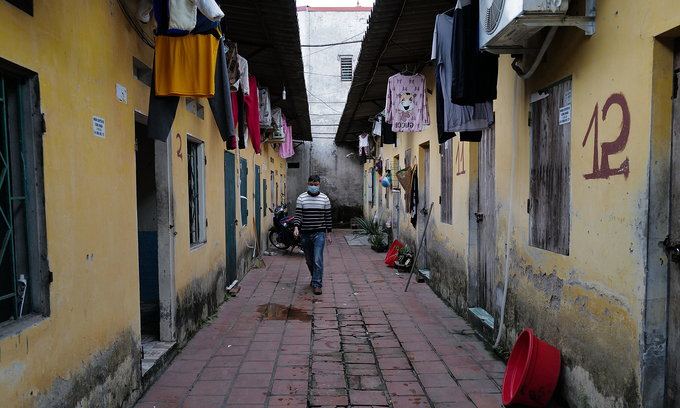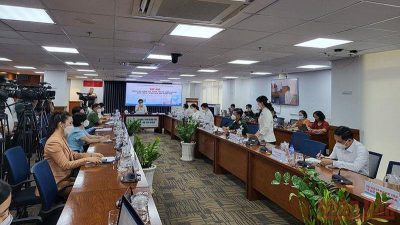
Fifteen localities have disbursed VND70 billion ($3 million) to support 13,500 workers renting apartments, a mere 1 percent of the target, a top labor official said.
The government in late March issued a decision to grant a financial support package of VND6.6 trillion ($287.4 million) to help migrant workers pay rent for up to three months.
The package is to be given to 3.4 million people by mid-August.
As approved by the government, each worker will receive VND500,000-1 million per month over no more than three months.
Two groups of beneficiaries are those who have labor contracts and have contributed to social insurance premiums via their salaries; and those that are currently working at industrial parks, export-processing zones and economic zones in 24 cities and provinces: Hanoi, Hai Phong, Quang Ninh, Hai Duong, Hung Yen, Vinh Phuc, and Bac Ninh in the north, Thua Thien-Hue, Da Nang, Quang Nam, Quang Ngai, and Binh Dinh in the central region, and Ho Chi Minh City, Binh Phuoc, Tay Ninh, Binh Duong, Dong Nai, Ba Ria – Vung Tau, Long An, Tien Giang, Can Tho, Ca Mau, An Giang and Kien Giang in the south.
Until now, 558,000 workers at 13,800 companies in 45 cities and provinces have applied for the package. Of them, 280,900 in 38 localities have had their applications approved with total aid of VND209 billion.
But until now, only VND70 billion has been disbursed, or less than 1 percent of the approved target, Le Van Thanh, Deputy Minister of Labor, Invalids and Social Affairs, said at a government meeting Monday.
Thanh said one of the reasons for the slow disbursement is that most localities have to wait for the central government to allocate funds.
To tackle the issue, Prime Minister Pham Minh Chinh had decided at the meeting to extract the state fund for the rental assistance package.
In other cases, workers had trouble getting signature confirmation from their landlords, or their employers have taken more time than needed to verify and transfer their applications to Vietnam Social Insurance (VSI) for approval.
As requested, the application, with landlord signatures, must then be verified by employers and later approved by the VSI and local authorities.
The aid package for workers living in rented apartments came to life with the aim of luring workers back to industrial zones, in the context that the latest Covid-19 wave had caused many to leave cities for their hometowns.
Due to impacts of the wave, which hit Vietnam last April, many businesses were forced to shut down, and as many as 1.3 million migrants had returned to their hometowns between July and Sept. 15 last year, according to the General Statistics Office.
Later, when social distancing measures were eased in early October, another tens of thousands of migrant workers decided to leave HCMC and neighboring industrial hubs Binh Duong and Dong Nai for their hometowns.
In most cases, people explained they had run out of money after losing their jobs due to the Covid-19 outbreak, and that home was their safest bet. Besides, they were all afraid of yet another outbreak with restrictions loosened.
According to the latest ministry data, during the third quarter of last year, the number of employed laborers dropped to just more than 47.3 million, the lowest in a decade.
Over 1.7 million factory workers in Vietnam, or 70 percent of the total, are living in boarding houses in an average space per capita of less than three square meters, according to official data.
Source: VnExpress

